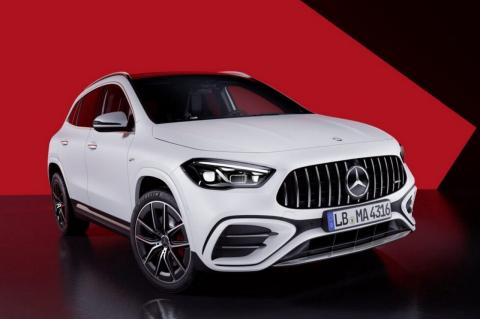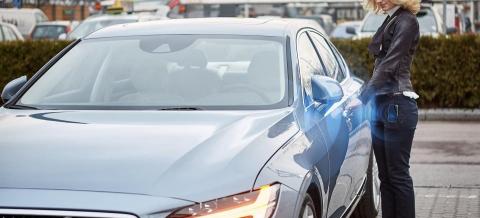Alternative energy vehicles are making a bigger gap every time among the renting preferences in Spain. According to the survey carried out by coche.net, the expert mobility marketplace, the market leader in Spain, 55% of those consulted say they would hire a rental service for a new hybrid car (26.8%), plug-in hybrid (17 .6%), an electric (9.2%), hydrogen (1.3%) or LPG/CNG (0.7%). Among those who are committed to renting a sustainable vehicle, 60% consider that the price should not increase.
However, this sustainability criterion drops to 39% when it comes to second-hand vehicle rental, whether it is a hybrid vehicle (21.2%), plug-in hybrid (7%), electric (7%), hydrogen (2%) or LPG/CNG (2%). For the rest, diesel cars would be the preferred option for 34% of those surveyed who are considering renting a second-hand car, while gasoline cars would be the choice for the remaining 26%.
Budget to contract a renting
The amount that users are willing to pay for this service is striking. Six out of ten would be willing to pay up to 300 euros per month, the same amount that four out of ten used car rental users would be willing to pay. Three out of ten renting users don’t see it wrong to pay up to 400 euros for a new vehicle renting. Only 10% of those consulted would be willing to pay more than €400 per month.
The budget for second-hand renting would range between €150-200 for 34% and between €200 and €300 for 38%. When asked how much cheaper they expect it to be to contract a second-hand car rental compared to a new one, 42% expect that the rental of a second-hand car will be at least 30% cheaper than that of a new one, while for 30% of those surveyed said it should be between 10 and 20% cheaper.
Between 2 and 3 years of contract, the preferred option

Five out of ten respondents would contract a renting service for a period between 2 and 3 years and another three would do so for a period of up to five years. Only one in ten would hire him for a year. Very similar data among those who would opt for second-hand renting: 6 out of 10 would contract the service for 2 and 3 years, while 22% would do so for more than 4 years. It should be noted that in this case, 15% indicate that their preferred option in case of contracting a second-hand leasing service would be for a period of 1 year.
On the other hand, if we look at the mileage (another determining factor in contracting a renting) we observe that the preferences are more widely distributed. In the case of opting for a new car rental, the majority of users will bet on contracting up to a maximum of 20,000 km per year: 33% indicate that they will opt for 15,000 km per year while 41% will do so for a strip that is It is between 15,000 and 20,000 km. In any case, only 26% would need a lease of more than 20,000 km per year.

In the case of a second-hand vehicle rental, the data does not vary much. 6 out of 10 will also opt for up to a maximum of 20,000 km, divided between 18% who say they want less than 15,000 km per year and 46.5% who are willing to contract a lease with a mileage of between 15,000 and 20,000 kilometres.
Age of the car, a determining factor in second-hand renting
The age of the vehicle is a determining factor for those people who consider renting a second-hand car (37% of those surveyed). Nearly seven out of ten respondents would opt for a car that is between two and three years old. 16% would dare with a car between 4 and 5 years old and 14% indicate that it should be a maximum of one year old. Regarding mileage, 71% of those interviewed would like the car to have no more than 40,000 km.
Essential benefits to contract a renting
The respondents are overwhelmingly clear that the most important criterion is that the car has a good maintenance and breakdown service. It is the most chosen benefit both by those who bet on renting a new vehicle and by those who consider renting a used car.

The management of the insurance, the replacement vehicle, the tires and being able to include unlimited kilometers complete the 5 benefits that they consider essential to hire a rental. There is only one essential service that is different among those who would hire a second-hand vehicle, the management and payment of the ITV, which in this case has been chosen over unlimited mileage.
- Marcel Blanes, head of Institutional Relations at cohes.net and motos.net, points out that after analyzing the results of this survey, “we see that renting is clearly a strategic entry point to increase the presence of hybrid and electric vehicles in our park motoring. On the other hand, we observe that renting a second-hand vehicle and preferably less than 3 years old is a good alternative for those users who consider renting.”
- In the words of José-Martín Castro Acebes, president of the Spanish Association of Vehicle Renting (AER), “renting is the solution that is most invigorating sustainable mobility, proof of this is that one in four registrations is done by renting , and one in three when it comes to electrified vehicles. In the last six years, the sector has made investments of almost 30,000 million euros in vehicles equipped with the latest technologies. In the first quarter of 2022, the fleet will exceed 800,000 units. However, the most important thing is that leasing continues to attract customers constantly, with annual growth of around 10%, which is why, at the end of the first quarter of 2022, we will approach 250,000 customers belonging to all segments, who find in the product the vectors of sustainability and flexibility that they demand in their daily mobility”.









